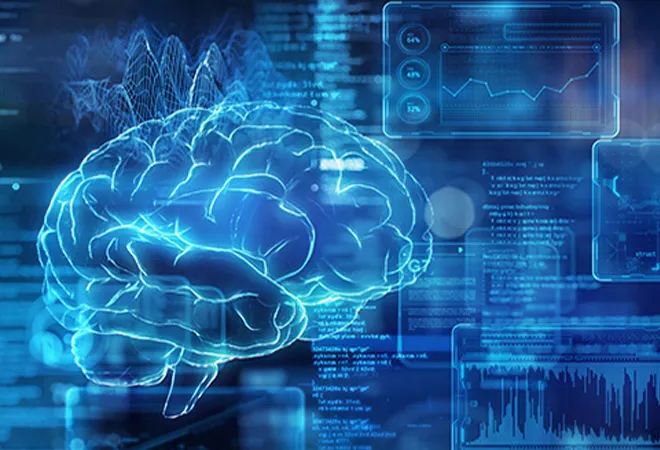
Ethical guidelines, robust legislation, and international collaboration are essential components for navigating the complex landscape of QAI technology

Quantum Computing has advanced rapidly in recent times. With Big Tech firms and research labs paving the way for fault-tolerant Quantum computers, their impact on other emerging technologies, like Artificial Intelligence (AI), is inevitable. Quantum computers promise lightning-fast solutions to complex problems, replacing years of computation with speed. They’ll optimise machine learning and exponentially boost computing power, yielding superior generalisation results.
At the intersection of these two ground-breaking technologies, a novel field has started to emerge known as Quantum Artificial Intelligence (QAI). AI coupled with Quantum computing can suggest best navigation routes, drastically improve autonomous systems, accentuate drug discovery, significantly improve medical diagnosis, optimise complex supply chain decisions, amongst other uses. Every industry is set to be impacted by QAI.
However, in recent years, AI has posed severe challenges apropos of its regulation and ethical usage. With the advent of generative AI, its coupling with Quantum systems will only exacerbate existing issues of fair and transparent use of the technology, sometimes aggravating the existential and catastrophic risks that come with AI. As tech giants like Google, IBM, and academia make strides in QAI, governments must be proactive in understanding the implications of the emergent technology and ascertain measures to ensure that these two powerful emerging technologies do not go the way of the atom bomb.
What is Quantum Artificial Intelligence?
As Quantum computers become more and more feasible, a new field of their application has emerged, viz., Quantum AI. It sits at the intersection of these two disruptive technologies—Quantum Computing and Artificial Intelligence. As scientific studies suggest, machine learning models try to address combinatorics challenges. Often, these have several variables and involve complex calculations. Using AI on classical computers, these problems would take a significant amount of time to solve and might still need to be able to yield the most optimal solution. On the contrary, using AI models with Quantum computers (based on the principles of Quantum mechanics) can solve such problems in seconds. Quantum computers can also find patterns in large datasets, which classical computers cannot, and research suggests that these machines would be better equipped to deal with incomplete data or corrupt data.
In short, QAI is using Quantum Computing to augment the capabilities of existing AI systems.
QAI is using Quantum Computing to augment the capabilities of existing AI systems.
A few applications of Quantum AI
The fusion of Quantum computing and AI will impact nearly every industry significantly. Several tech companies and research labs have established a forum for training engineers, scientists, and Quantum computing specialists on QAI. Tests and pilots are being carried out worldwide for different industrial use cases. Despite the theoretical promise, practical adoption depends on technological progress, regulations, and the industry’s willingness to invest.
Finance and banking: Quantum AI’s potential impact on finance is significant but emerging. It could optimise tasks like risk assessment and fraud detection, enhance portfolio management and option pricing, and advance machine learning algorithms. Quantum computing’s speed might disrupt high-frequency trading. Quantum neural network models for predicting stock market behaviours accurately have been developed.
Healthcare: Quantum computing could accelerate drug discovery by simulating molecular interactions, revolutionise medical imaging through improved accuracy and speed, and optimise complex genetic analysis. Quantum AI could enhance machine learning algorithms for disease prediction and personalised treatment.
Logistics and supply chain: Quantum AI stands to transform logistics and supply chains. Quantum computing could optimise route planning, warehouse management, and inventory optimisation, leading to faster, cost-efficient deliveries. Enhanced simulations might predict disruptions and streamline operations. Quantum AI’s data processing could improve demand forecasting and real-time tracking accuracy.
Navigation: Quantum computing’s immense computational power could enhance GPS accuracy, enabling precise positioning in challenging environments like urban canyons and remote areas. Quantum AI algorithms could optimise real-time route calculations, improving traffic flow and reducing congestion. It could also bolster autonomous vehicle navigation, making more efficient decisions based on complex sensor data.
Environment: Quantum AI holds promise for addressing the complex environmental challenges of the present day. Quantum computing’s computational capabilities could model complex climate scenarios and predict ecological impacts more accurately. Simulations might lead to the discovery of novel materials for efficient energy production and storage. Quantum AI’s optimisation algorithms could enhance resource management, waste reduction, and supply chain sustainability.
Implications of Quantum AI
QAI will have repercussions on almost all aspects of society and nation-states. Researchers, technologists, the scientific fraternity, and civil society have raised concerns about the multi-fold implications of QAI. A few of them have been discussed here.
Quantum will exacerbate the catastrophic risks of AI: Quantum computing could amplify catastrophic AI risks due to enhanced computational capabilities. Accelerating the development of advanced AI systems could lead to unintended consequences or uncontrollable behaviours. The increased speed might hasten the propagation of harmful AI-generated content, misinformation, and cyberattacks. Quantum-enabled optimisation could also create superintelligent systems with unintended outcomes. Addressing these risks requires aligning quantum and AI safety research, robust governance, and ethical considerations.
Quantum-enabled optimisation could also create superintelligent systems with unintended outcomes. Addressing these risks requires aligning quantum and AI safety research, robust governance, and ethical considerations.
Existing governance issues can be amplified: Quantum computing could significantly impact existing AI governance challenges. Quantum AI might accelerate the training and optimisation of AI models, potentially leading to biased or unsafe outcomes at a faster pace. Encryption breaches facilitated by quantum computing could threaten data privacy and security. There needs to be more than existing regulations and ethical guidelines to address the unique risks posed by Quantum AI. Consequently, AI governance frameworks must be updated to encompass Quantum-specific considerations, including data protection, bias mitigation, transparency, and accountability.
Geopolitical implications could be heightened: Quantum AI could reshape existing geopolitical dynamics. Quantum computing’s superior cryptography-breaking abilities could disrupt global cybersecurity and intelligence operations, prompting shifts in defence strategies. Its ability to accelerate technological advancement could shape military capabilities and strategies, potentially creating regional disparities. Nations at the forefront of Quantum development might gain competitive advantages in information warfare, PSYOPs, disinformation, etc., leading to shifts in the global power scenario.
Countries that achieve Quantum supremacy might gain competitive advantages in the socio-political fabric, widening the gap between the haves and have nots. Quantum AI’s potential to accelerate technology development could lead to economic asymmetries among nations. Geopolitical tensions could arise from the race to attain quantum dominance as countries strive to control this transformative technology.
Data privacy and cybersecurity threats could increase manifold: It could have profound implications for data privacy and cybersecurity. While Quantum encryption could enhance data security, quantum computers might also break current encryption methods, jeopardising sensitive information. The advent of Quantum computing necessitates the development of Quantum-safe encryption (or Quantum-secure algorithms) to protect against potential breaches. On the one hand, Quantum AI’s enhanced processing power could aid in identifying and mitigating cyber threats; on the other hand, it could also empower malicious actors with more potent attack capabilities.
The way ahead
The growing prominence of Quantum AI calls for thoughtful regulation to harness its potential while safeguarding against risks. Collaborative efforts involving scientists, technologists, policymakers, and stakeholders are imperative for effective regulation. Their diverse perspectives can address complex technical, ethical, and societal implications. Incorporating scientists and technologists into policy-making processes is essential. Their expertise can help craft technically sound regulations, improve adaptability to rapid advancements, and ensure the responsible development and deployment of Quantum AI technologies.
Ethical considerations are central to Quantum AI regulation. Establishing clear ethical frameworks and accords can guide the use of the technology in ways that prioritise transparency, fairness, privacy, and accountability. This is particularly crucial as QAI’s capabilities could lead to bias, discrimination, or unintended consequences if not carefully managed. Legislation and regulation must be implemented to prevent an extreme concentration of geopolitical influence. As nations strive to achieve Quantum supremacy, imbalances in technological capabilities could lead to power disparities. Implementing measures promoting equitable access to QAI resources and knowledge can mitigate this risk and foster a collaborative global quantum ecosystem.
International cooperation is paramount. Multilateral agreements and collaborative initiatives can help align regulatory approaches across borders, prevent regulatory arbitrage, and ensure a level playing field for all stakeholders. Sharing best practices, data, and expertise can collectively address global challenges associated with QAI.
Conclusion
In conclusion, regulating Quantum AI requires a comprehensive approach that engages diverse experts and stakeholders. Ethical guidelines, robust legislation, and international collaboration are essential components for navigating the complex landscape of QAI technology. By fostering responsible development, QAI can realise its potential to drive innovation while minimising risks and ensuring equitable benefits for society at large.
Prachi Mishra is a Young Leaders in Tech Policy Fellow at the University of Chicago, presently working at ORF’s Centre for Security Strategy and Technology for their quantum meta-ethics project.
The views expressed above belong to the author(s).
ORF research and analyses now available on Telegram! Click here to access our curated content — blogs, longforms and interviews.



